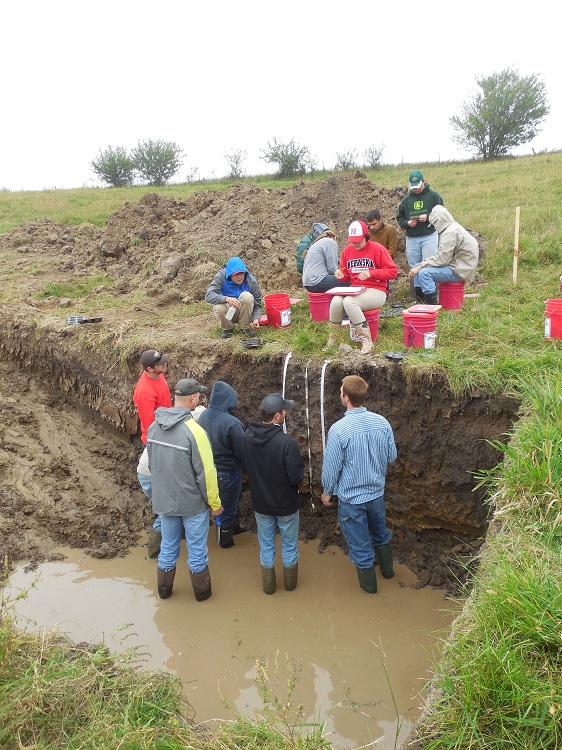
UNL will appear at the 2015 National Collegiate Soil Judging Contest following a third-place finish at regionals on Oct. 2 in Ames, Iowa.
"I was very pleased and confident with our performance during the competition," said Austin Baldwin, a senior environmental restoration science major. "We (went) into the competition with many individuals on the team that have been a part of the team before, so we were really able to work together and build off of what we have learned."
The national contest will take place in the spring at the University of Arkansas-Monticello, where UNL hopes to unseat defending national champion Virginia Tech.
Collegiate soil judging originated in the southeastern United States in 1956 and began in the Midwest in 1958 with a contest hosted by Kansas State University. Today, the American Society of Agronomy organizes the contests and more than 40 universities from seven regions participate. Region 5 includes universities from Iowa, Kansas, Minnesota, Missouri, Nebraska, North Dakota and South Dakota.
"Soil judging has really taught me a lot about leadership and dedication," Baldwin said. "I really enjoy the team aspect of the competition. We all push each other to go into the competition as prepared as possible."
At UNL, team members take a one-credit hour class. Depending on when the fall semester begins and when competitions are scheduled, the team has anywhere from one to five weeks to prepare and train before a contest.
"We cover how the competition works, what aspects of the soil the students will judge, how their answers are generally graded," said Becky Young, graduate student and a team assistant coach. "Since some of the students are new to soil judging each year, we also practice the soil judging techniques like how to determine a soil color, soil texture, soil structure and how to classify the soil based on the properties they're observing."
Additionally, three practice days precede the actual contest, giving the team a chance to familiarize themselves with the material at hand.
"The hosting school provides all of the teams with various soil profiles to practice on to get an idea of what the soils are like in that particular area, and to get a feel for what might be seen during the competition," Young said. "During those three days, the teams practice from about 8 a.m. until 5, 6 or even 7 p.m., and really begin to get a feel for what soil judging is and refine their techniques and judgments."
Josiah Dallmann, a senior agronomy and fisheries and wildlife major, said all of that practice – plus the team's strong morale – paid off.
"The contest in Ames was both fun and challenging," Dallmann said. "The competitive spirit was high, but I think our team showed up with a positive, calm and focused demeanor. That, combined with our practice from the previous three days, earned us a third-place spot."
UNL Soil Judging Team members:
Austin Baldwin
Roberto Carlos
Josiah Dallmann
Joshua Gates
Philip Goodin
Seth Gurley
Alainie Hersh
Danielle Jones
Mark Keck
Jared Krueger
James Reece
Rachel Stevens
Jared Williams
Coaches:
Mark Kuzila
Paul Hanson
Assistant coaches:
Zachary Olson
Rebecca Young
— Mekita Rivas, Natural Resources